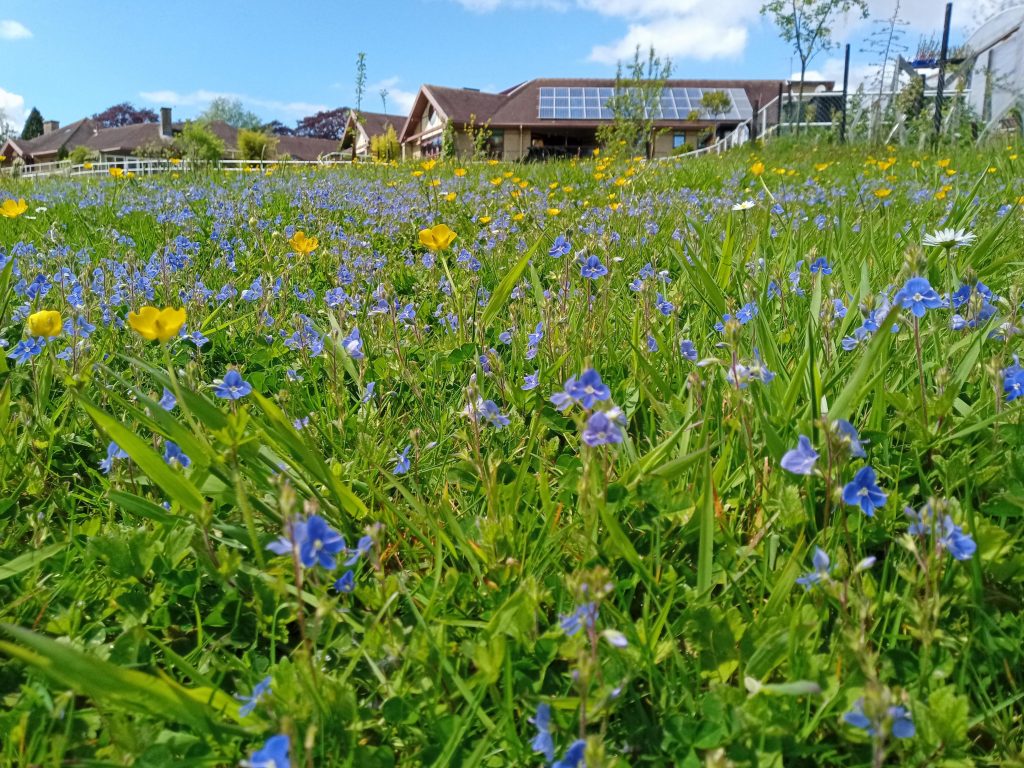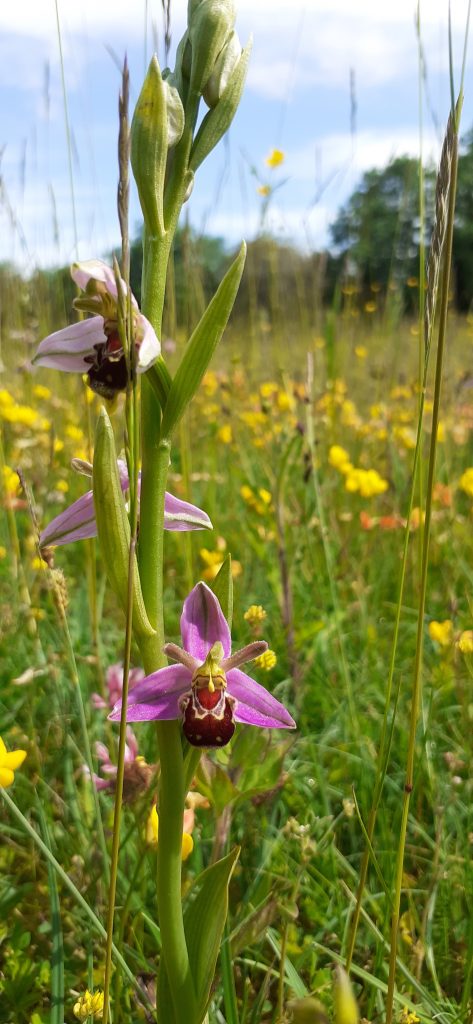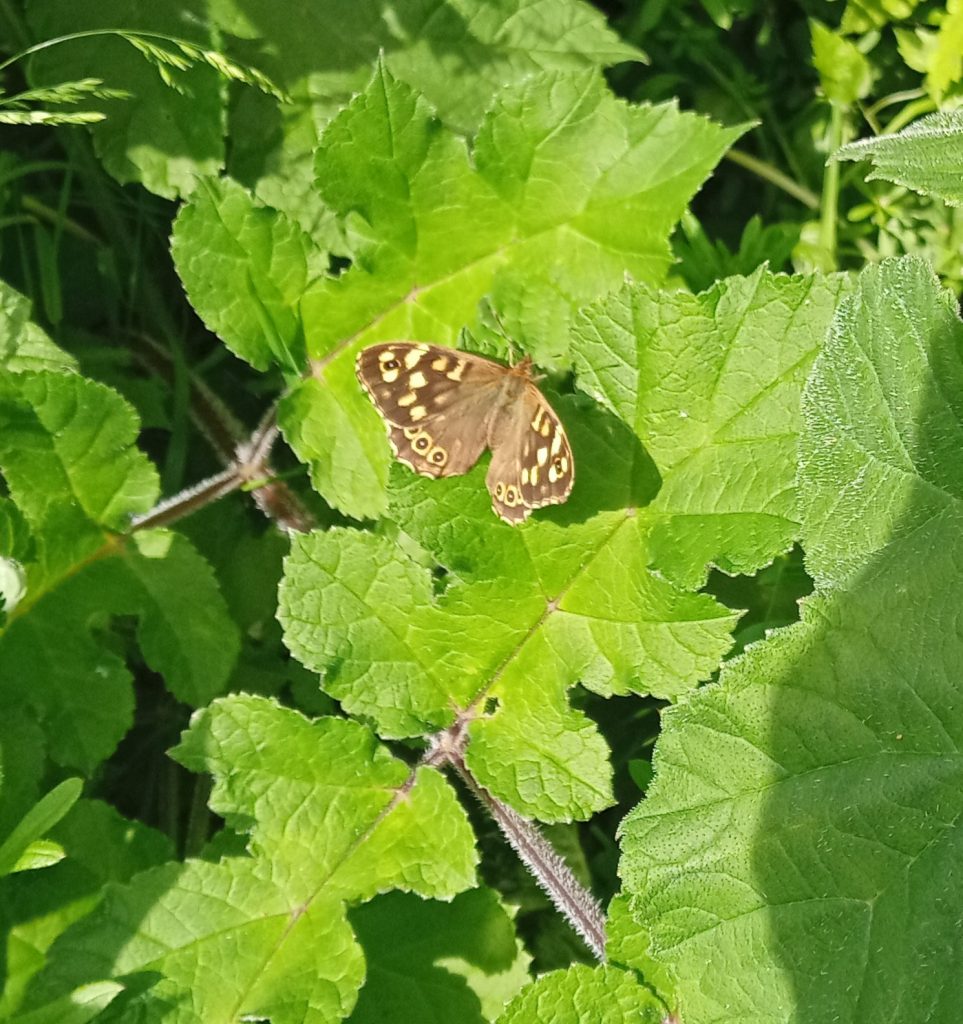
Birds, bees, plants, flowers and trees have all received a boost thanks to a successful ‘No Mow May’ and Nature Isn’t Neat campaign. Over the last two months, verges and green spaces have been left to grow, allowing flowers and wild grasses to develop to support pollinators. The success of the campaign comes as Monmouthshire County Council gears up for the summer months and is reminding residents of its selective mowing policy.
Under the policy, sports pitches, path edges and road junctions will be mown while in other areas, the longer grass will gradually be cut, so residents will notice there will not be an immediate return to short green lawns. Some larger green spaces will have paths cut through them, and circles to provide areas for people to sit or children to play. This will create a more varied greenscape, providing a wider range of recreational and social opportunities as well as benefitting more species, and make a more interesting, natural environment. These changes will continue as the seasons progress, and some grass will not be cut until the end of the summer. There is no intention to return to flat, close-mown grass throughout the county’s green spaces, as this is not beneficial to the environment.

Monmouthshire County Council’s cabinet member for grounds maintenance and climate change, Councillor Jane Pratt, said: “It’s been wonderful to hear the overwhelmingly positive and supportive response to No Mow May from residents, who have reported enjoying the appearance of longer grasses swaying in the breeze, more wild flowers, and hearing the buzz of insects feeding on them. A wide diversity of different flowers have appeared in parks and footpath verges, ranging from daisies and dandelions to cow parsley, buttercups, hawkweed and trefoils. There have been rarities too, like the exotic-looking bee orchids spotted in Chepstow, Monmouth and Caerwent.
“Now we are moving into the next phase – selective grass mowing is resuming. As the mowing teams work their way around the county, they will still be observing the key principles of Nature Isn’t Neat, which partners the ethos of No Mow May perfectly,” said Cllr. Pratt.

Councillor Jane Pratt, added: “The changes are a key part of our response to the catastrophic decline in biodiversity, particularly in numbers of pollinators. Our mowing policy will directly increase habitats, shelter, food sources and hibernation sites for them. Pollinators need more than just flowers to survive and thrive, moths and butterflies for example have a caterpillar stage that need grasses and wild plants like nettles as an edible food source, and somewhere safe to develop when they are in their chrysalis stage. Wildflowers and plants are essential to the ecosystem, which support everything, including all of us. Our green spaces and gardens, whether in towns or the countryside, have a vital part to play, and the council has a duty to manage the environment under its control in a sustainable way. Our Nature Isn’t Neat principles are designed with this in mind. The changes they encompass will help make our towns and green spaces more resilient to climate change and help us all as we face the challenges ahead.”
For more information about Nature Isn’t Neat visit monmouthshire.gov.uk/nin/